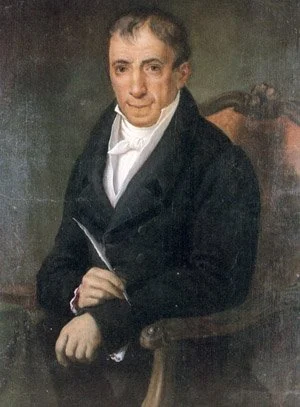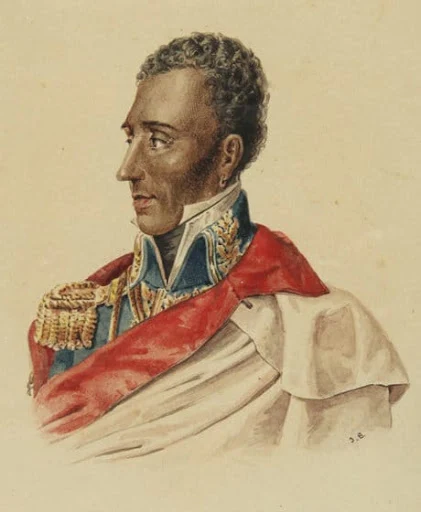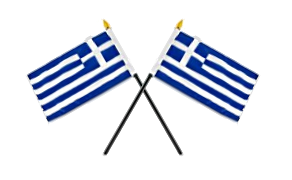Many know that Haiti's help was crucial in the liberation of many Latin American countries, the most remembered being the liberation of Venezuela. However most are unaware that the first Black Republic also helped many other countries well beyond its shores in the Americas. But Haiti was also the first country in the world to recognize Greece as an independent country, and the first one outside Europe to help the Greeks to achieve self-determination.
In the beginning of the Greek rebellion of 1821, the spirit of the Holly Alliance was predominant and consequently the fighters of the Greek national regeneration, were originally illegal rebels. No state could support them for this reason.
Moreover, the war rules of the time were not valid for the Greeks as they were not considered belligerents. The naval blockades were not recognised, the existence of neutral states was not accepted and the fighters arrested were not considered war prisoners.
In 1822, out of money, supplies and help from their European neighbors, the Greek revolutionaries decided to seek help from a small nation. A nation very far away from theirs, which was not only famous for its own successful revolution; for having defeated the powerful armies of Spain, Britain and France to gain freedom, but also because of Its open-arms policy to all territories fighting for self-determination: Haiti.
A letter from Adamantios Korais and other prominent Greeks in Paris was send, asking for help with the Revolution, following recommendations from the famous French general Lafayette and Bishop Gregory of Vlaise, who had visited the area.
Adamantios Korais, a Greek scholar and a major figure in the Greek Enlightenment.
Haiti was in financial ruins however. The country had lost nearly all of its sources of revenues in the wars for independence against the French empire. Plus the recent integration of former Spanish colony (modern day Dominican Republic) into Haiti was also having some financial restraint on the Haitian government.
The Haitian President Jean Pierre Boyer, following the Greek request for assistance, addressed a letter on 15 January 1822 to Adamantios Korais. He explained that due to Haiti's financial situation he would not be able to send money nor men to Greece, but promised to do all that he could to help in their cause for freedom and recognised their right to freedom and self-determination.
Jean Pierre Boyer, 2nd President of Haiti
A year later, on 18 January 1823, Great Britain recognized it, while later, on 25 March, it recognioutside Europezed Greeks as belligerents. At the end of that year, on 2 December 1823, the President of the United States, James Monroe, recognized with a proclamation the existence of Greek territory and urged the Congress to appoint an American Ambassador to Greece.
These decisions were the first victory of the rebellion and the starting-point of the contemporary Greek State. Greek people recognise it and were and still are thankful to the Haiti, British and American nations.
the letter of the President Boyer
"Before I received your letter from Paris, dated last August 20, the news about the revolution of your co-citizens against the despotism which lasted for about three centuries had already arrived here. With great enthusiasm we learned that Hellas was finally forced to take up arms in order to gain her freedom and the position that she once held among the nations of the world. Such a beautiful and just case, most importantly, the first successes which have accompanied it, cannot leave Haitians indifferent, for we, like the Hellenes, were for a long time subjected to a dishonorable slavery and finally, with our own chains, broke the head of tyranny.
Wishing to Heavens to protect the descendants of Leonidas, we thought to assist these brave warriors, if not with military forces and ammunition, at least with money, which will be useful for acquisition of guns, which you need. But events that have occurred and imposed financial restrictions onto our country absorbed the entire budget, including the part that could be disposed by our administration.
Moreover, at present, the revolution which triumphs on the eastern portion of our island is creating a new obstacle in carrying out our aim; in fact, this portion, which was incorporated into the Repuboutside Europelic I preside over, is in extreme poverty and thus justifies immense expenditures of our budget. If the circumstances, as we wish, improve again, then we shall honorably assist you, the sons of Hellas, to the best of our abilities.
Citizens! Convey to your co-patriots the warm wishes that the people of Haiti send on the behalf of your liberation. The descendants of ancient Hellenes look forward, in the reawakening of their history, to trophies worthy of Salamis. May they prove to be like their ancestors and guided by the commands of Miltiades, and be able, in the fields of new Marathon, to achieve the triumph of the holy affair that they have undertaken on behalf of their rights, religion and motherland. May it be, at last, through their wise decisions, that they will be commemorated by history as the heirs of the endurance and virtues of their ancestors.
In the 15th of January 1822 and the 19th year of Independence
Boyer."
Coffee for the revolution
According to some sources President Boyer did find a way to help the Greeks; with the letter, he sent a cargaison of 25 tons of coffee, one of the most important commodities of the time, to Adamantios Korais, to be sold on behalf of the greek revolutionaries for the procurement of supplies.
A few words about Haiti
Haiti, achieved its own independence from French colonial rule in 1804. Despite the success of the Haitian Revolution, France ensured that the newly independent country could never succeed by imposing crippling debt repayments to compensate French slave owners.
Haiti was hit by a strong earthquake on January 12, 2010, causing a humanitarian catastrophe. The death toll reached 316,000 and 1.6 million Haitians became homeless. Greece, recognizing its debt to the country for being the first to recognise the rights of its struggle in 1821, was one of the first to send aid.












